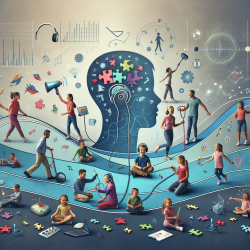Introduction
In a world where mental health challenges are increasingly prevalent, equipping educators with the necessary tools and knowledge is paramount. The study titled "A school mental health literacy curriculum resource training approach: effects on Tanzanian teachers’ mental health knowledge, stigma and help-seeking efficacy" provides insightful data on the transformative power of mental health literacy (MHL) training for teachers. This blog explores how the findings from this study can be implemented by practitioners to enhance educational outcomes and mental health awareness in schools.
Understanding the Study
The research focused on Tanzanian secondary school teachers who underwent training using the African Guide (AG), a culturally adapted MHL curriculum. The study aimed to evaluate the impact of this training on teachers' mental health knowledge, stigma, and help-seeking efficacy. The results were promising, showing significant improvements in teachers' overall knowledge and a reduction in stigma towards mental illness.
Key Findings
- Knowledge Enhancement: Teachers demonstrated a significant increase in mental health knowledge, with a large effect size (Cohen’s d = 1.14).
- Stigma Reduction: There was a substantial decrease in stigma related to mental illness, indicating a moderate effect size (Cohen’s d = 0.61).
- Help-Seeking Efficacy: Teachers reported high rates of positive help-seeking efficacy for themselves and their students, friends, and family members.
Implications for Practitioners
For practitioners, these findings underscore the importance of integrating MHL into school curricula. By training teachers, we not only enhance their knowledge but also empower them to become advocates for mental health within their schools and communities. This approach can lead to:
- Improved student mental health outcomes.
- Reduced stigma surrounding mental health issues.
- Increased identification and referral of students needing mental health support.
Encouraging Further Research
While the study provides a strong foundation, further research is needed to explore the long-term impacts of MHL training and its scalability across different regions. Practitioners are encouraged to participate in or initiate studies that replicate these findings in diverse educational settings.
Conclusion
The study highlights the potential of MHL training in transforming educational environments and improving mental health outcomes. By adopting similar approaches, practitioners can contribute to a more informed and supportive educational system.
To read the original research paper, please follow this link: A school mental health literacy curriculum resource training approach: effects on Tanzanian teachers’ mental health knowledge, stigma and help-seeking efficacy.










